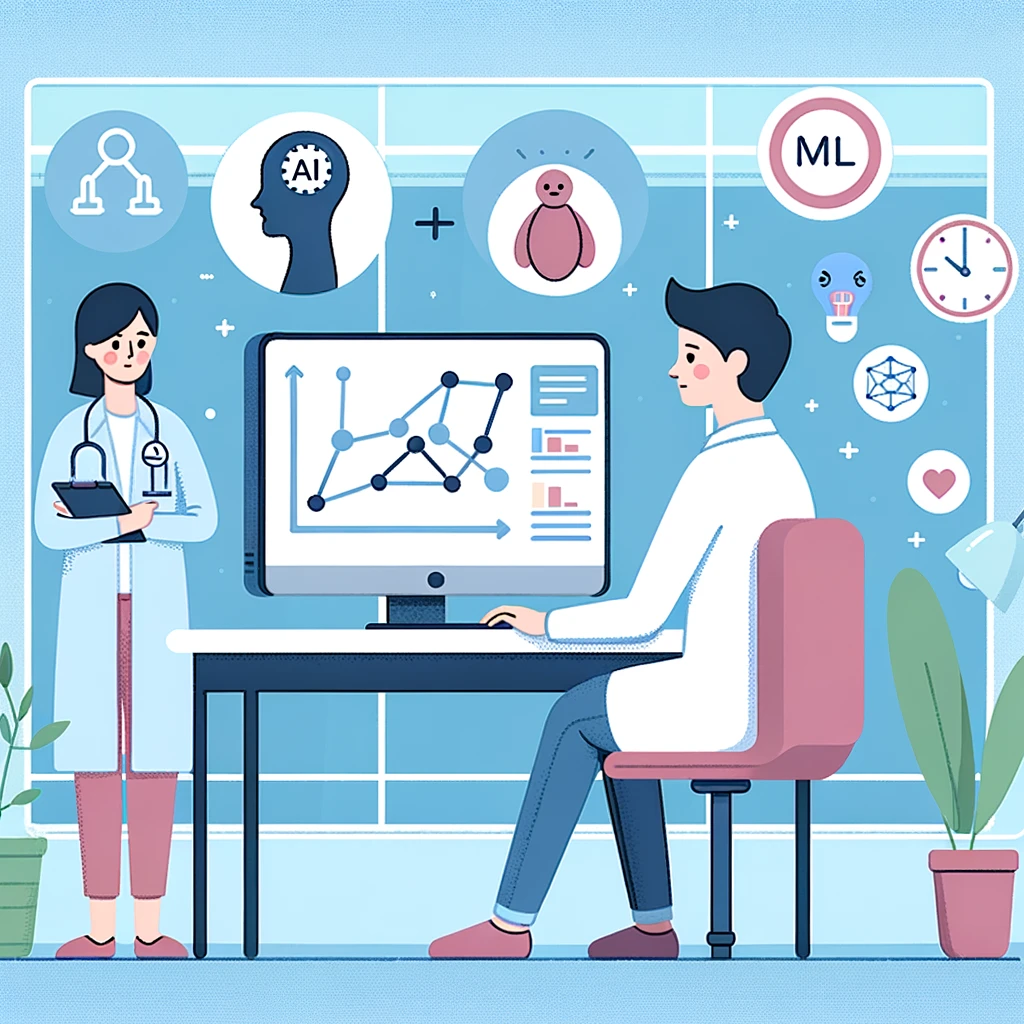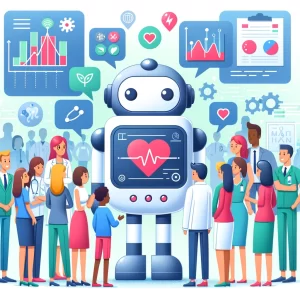
Exploring the Future of Mental Health Care: AI and Machine Learning Decision Support Systems
Mental health care stands at the brink of a technological revolution.
The recent article, “Artificial intelligence (AI) and machine learning (ML) based decision support systems in mental health: An integrative review,” delves into the profound implications of AI and ML in reshaping mental health practices. This blog aims to unpack these complex scientific concepts into an engaging narrative, highlighting their potential impact on public health practitioners.
The Potential of AI in Mental Health Care
AI and ML are not just buzzwords; they are powerful tools poised to transform mental health care. This integrative review, conducted across six databases from 2016 to 2021, uncovers the current state of AI and ML in mental health settings. It reveals a primary theme: the trust and confidence of clinicians in these technologies are paramount.
Breaking Down Barriers
The integration of AI in mental health faces significant hurdles, chiefly clinician trust and acceptance, and system transparency. As technology rapidly advances, the healthcare industry must keep pace, not just in adopting new tools but in building confidence among clinicians.
AI as a Decision-Making Partner
AI-based decision support systems can augment clinicians’ capabilities, providing them with insights drawn from vast data sets. This can lead to more informed and timely decisions, potentially enhancing patient outcomes. However, the success of these systems hinges on their ability to earn the trust of healthcare professionals.
Challenges and Solutions
Understanding the Black-Box
One major challenge with AI and ML systems is their ‘black-box’ nature – the internal workings are often not transparent to the user. This lack of clarity can lead to distrust among clinicians. The solution? More intuitive and transparent systems that clearly communicate their reasoning processes.
Clinician Involvement is Crucial
The development of AI tools in mental health care must involve clinicians at every stage. Their insights can guide the creation of more effective and user-friendly systems, ultimately leading to better patient care.
Ethical Considerations
Data Privacy and Confidentiality
In mental health care, the sanctity of patient data is paramount. AI and ML systems often require extensive data to function optimally, which raises significant concerns about data privacy and confidentiality. Ensuring that patient data is used responsibly, with consent and in compliance with regulations like HIPAA (Health Insurance Portability and Accountability Act), is non-negotiable. This involves safeguarding data against unauthorized access and ensuring that patients are fully aware of how their data is being used.
Algorithmic Bias and Fairness
Another critical issue is algorithmic bias. AI systems are only as unbiased as the data they are trained on. If the training data is skewed or not representative of the diverse population that mental health practitioners serve, these systems may exhibit biases. For instance, an AI system trained predominantly on data from one demographic group may not perform as well for other groups. This can lead to disparities in care and outcomes, unintentionally exacerbating existing inequalities in mental health services. Addressing this requires a concerted effort to use diverse and inclusive datasets, along with ongoing monitoring for biases.
Replacement of Human Judgment
Perhaps the most philosophically challenging aspect is the extent to which AI and ML should influence or replace human judgment in mental health care. While these systems can provide valuable insights and augment decision-making, they cannot and should not replace the nuanced understanding and empathetic judgment that trained mental health professionals provide.
We can say that again: AI cannot and should not replace the nuanced understanding and empathetic judgment that trained mental health professionals provide.
The concern is not just about the accuracy of AI recommendations but about the loss of human connection and understanding in care, which are integral to mental health treatment. It’s crucial to strike a balance where AI supports, rather than supplants, the clinician’s judgment.
Transparency and Explainability
A related ethical concern is the transparency and explainability of AI decisions. Clinicians and patients have the right to understand how and why a particular AI-driven recommendation or decision was made. This is particularly challenging with some advanced ML models, known for their ‘black box’ nature. Efforts must be made to develop AI systems that are not only accurate but also interpretable and transparent, allowing clinicians to understand the reasoning behind specific recommendations.
Implications for Public Health Practitioners
For public health practitioners, the advent of AI and ML in mental health presents both opportunities and challenges. The ability to manage large volumes of data and derive meaningful insights can lead to more personalized and effective care strategies. However, it also demands a new set of skills and an understanding of these technologies’ limitations and ethical considerations.
Conclusion: Embracing the Future
The integration of AI and ML in mental health is an inevitable and necessary progression. As we move forward, it’s crucial that these technologies are developed and implemented thoughtfully, with a focus on transparency, ethical considerations, and, most importantly, the trust and confidence of clinicians and patients alike.
The potential benefits of AI and ML in mental health are immense. By embracing these technologies, we can move towards a future where mental health care is more efficient, effective, and accessible.
Join the Movement of Health Innovators – Subscribe for Weekly Insights!
Step into the forefront of public health innovation with ‘This Week in Public Health.’ Every edition brings you closer to the latest developments in research, community health, and advocacy. It’s more than a newsletter – it’s your resource for becoming an informed and active participant in the health community. Subscribe for free and join a network of individuals dedicated to making a lasting impact in public health!



